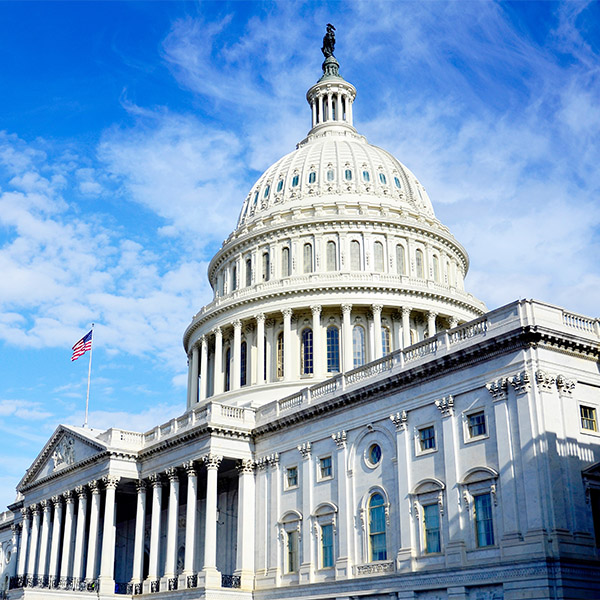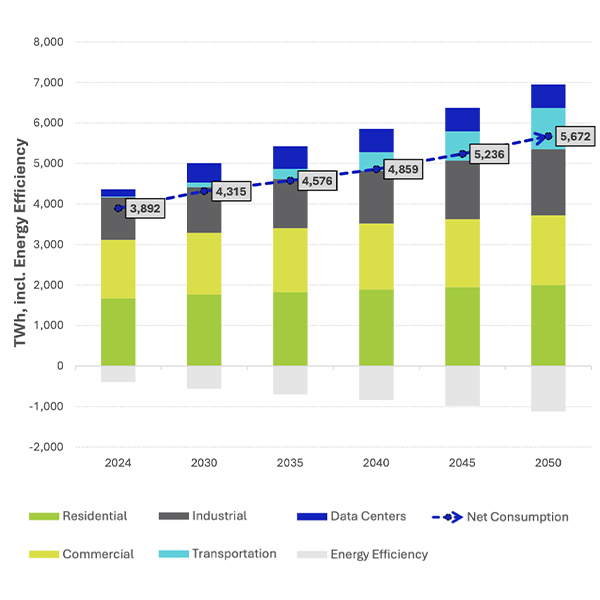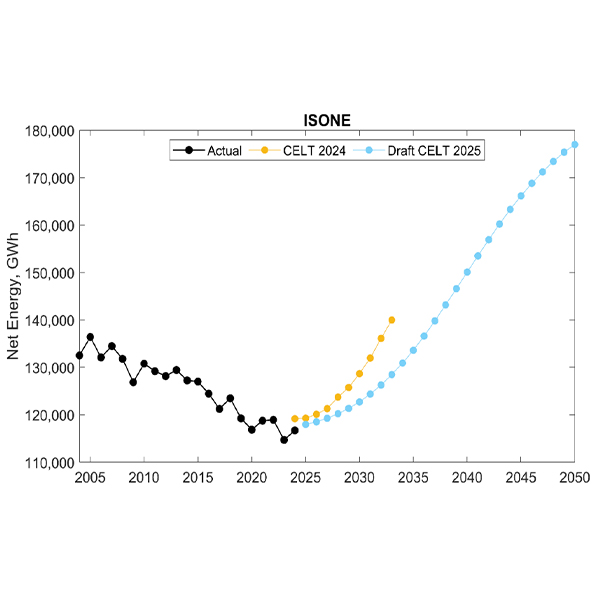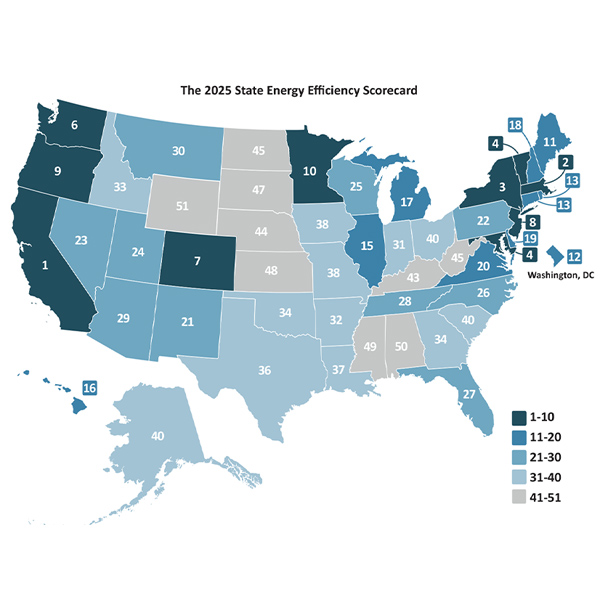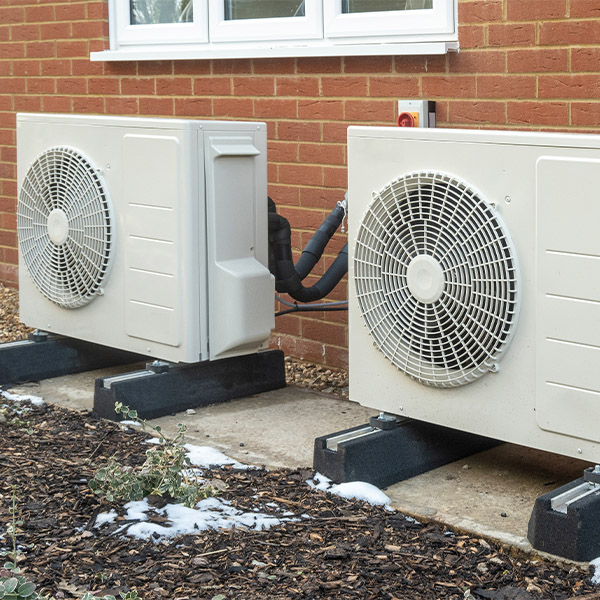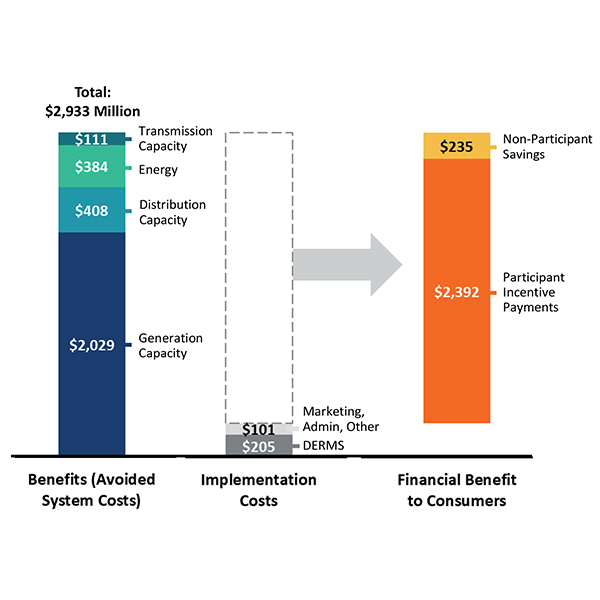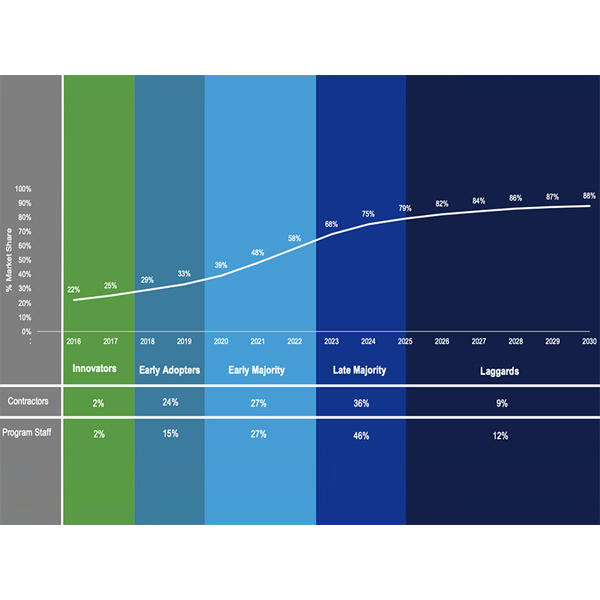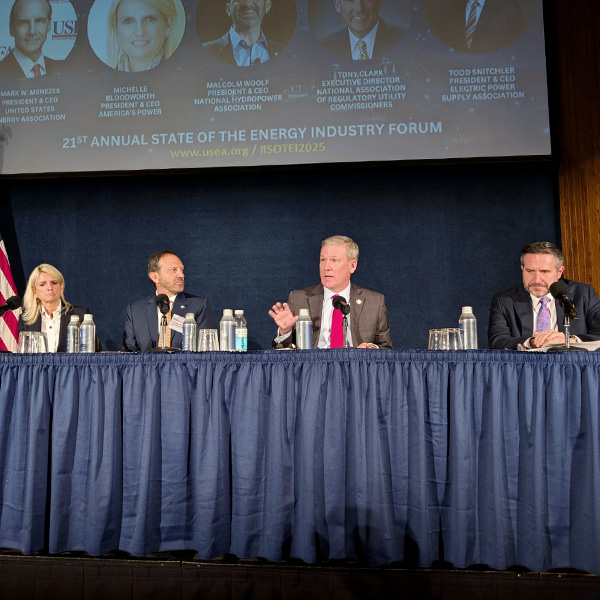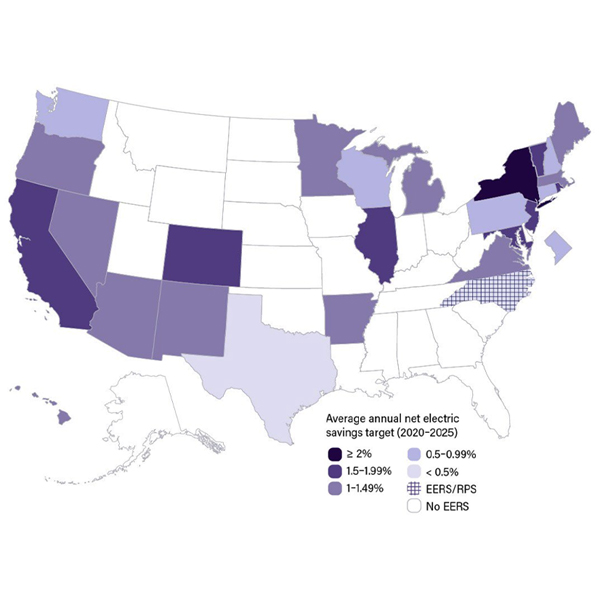Energy Efficiency
New York’s major utilities and its energy development entity have been cleared to administer $5 billion for energy efficiency and building electrification through 2030.
Key House committees are marking up “One Big, Beautiful Bill” for the fiscal 2025 budget that includes much of President Donald Trump’s legislative goals, including clawing back funds and phasing out tax credits for clean energy.
Electrical manufacturer trade group NEMA was the latest to release a forecast of electricity demand growth, which shows data centers dominating in the first decade plus, but EVs making up the most from the late 2030s onward.
As part of a major overhaul of its annual load forecasting process, ISO-NE has significantly scaled back its electrification forecast for electric vehicles and heat pumps.
The 16th ACEEE state energy efficiency scorecard put California at the top of the rankings and Wyoming at the bottom.
ACEEE's latest report argues that utilities should adopt winter discount rates to encourage heat pump adoption and recommends continued educational campaigns, including for HVAC contractors.
A Brattle Group study found that New York could achieve 8.5 GW in “grid flexibility” measures by 2040, saving consumers more than $2 billion a year.
Energy efficiency upgrades in the commercial and industrial sector have made LED lighting so common that additional upgrades require more than just swapping old bulbs for new technology, according to a DNV report.
Participants at the United States Energy Association’s 2025 State of the Energy Industry Forum discussed topics such as demand growth, nuclear fusion and energy efficiency.
ACEEE released a report highlighting how states are moving forward with energy efficiency resource standards and laying out some best practices.
Want more? Advanced Search

